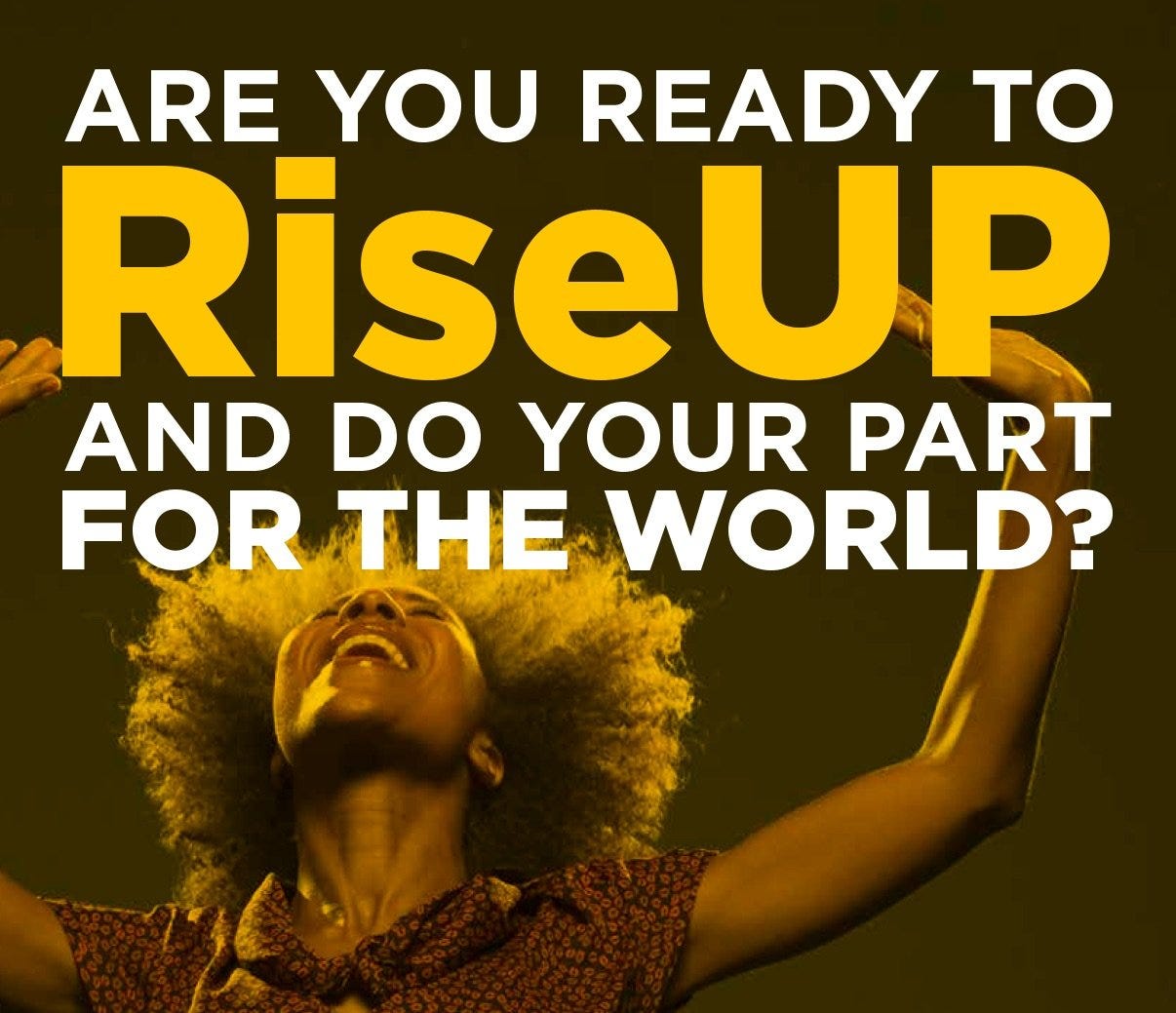WeRiseUp
This documentary is really just the cinematic component of an international movement by business leaders, activists and thinkers to rejigger all of human activity around collectivist action.
"WeRiseUp" is, as it declares itself, not so much a movie as a movement. Ostensibly a documentary, it's really just the cinematic component of an international effort by business leaders, activists and thinkers to imagine a better world where people are not so much focused on personal success as collective success.
They don't just want to talk about the usual do-gooder goals of cleaning up pollution, feeding the poor and healing the sick. They actually want to rejigger all of human thinking so that our first priority is altruistic intent for all others, and to give the boot to old ways of thinking built around competition and the mass accrual of resources and power.
Of course, you'll quickly note that most of the multitudes of speakers featured -- there must be a hundred or so -- are already wealthy and/or famous. That's fine. It's better to make a big pile and then think about ways to do good with it rather than just sit on the heap. Though it underscores my mantra that the only people who say money isn't really important are those who already have gobs and gobs of it.
As a movement, there's a lot to recommend about WeRiseUp. Though it may sound at first like a bunch of socialistic nattering, the basic idea that companies, neighborhoods and nations need to think more broadly about their activities is a laudable one. People have long complained that corporations tend to act like a virus, plowing through people and the environment with the single-minded goal of pursuing ever higher profits. As the experts in the film repeatedly point out, the end result of this way can only be self-termination.
As a movie, "WeRiseUp" can be rather repetitive and even a bit irritating. It's like being trapped in a TED Talk where you're not allowed to leave, where everyone on stage and in the crowd is so breathlessly positive and effusive in their energy it can feel less like communication and more like feel-good indoctrination.
There are plenty of CEOs from companies such as Whole Foods Market, Zappos and the like, people who have worked at Google or other digital giants. Some you may have heard of -- Richard Branson, the Dali Lama, Moby, Tony Robbins -- while others you may have heard of their books or their organizations. Many are complete strangers, though most have something interesting to say.
The ones who just sit there and spout off about how you need to do better, release your inner gift, stop focusing on money or traditional career paths, etc., tend to become monotonous. The best speakers in this "congress of minds" are those who talk about their own experiences, how they were going down a path that they had grown up being told was was the one that led to success, only to find themselves unhappy and unfulfilled.
There's the Google engineer who nearly died from a stress-induced GI rupture who now travels the world doing charity work. The doctor who wanted to be a rock star and started making music videos stressing health and wellness strategies. The guy who started a shoe company with the promise that for every pair sold, they would give another away to an unshod child.
It's always more compelling when someone experiences a personal change that upends the course of their life than some gazillionaire who gave away 5% of this year's investment earnings and now wants to be congratulated for it. But for the most part, the speakers in "WeRiseUp" seem earnest and well-meaning.
(The film was initially released with the traditional spelling of its title, but later slammed the words together, so that's the form I use.)
Director Michael Shaun Conaway uses a lot of commercial filmmaking tricks in the movie, like having the words someone is saying suddenly appear onscreen in huge lettering, as if to punctuate their thoughts better than they could. Occasionally the film gets away from the speakers to talk to some impoverished regular folks on the street, and it has the feeling of evoking pity for them rather than truly wanting hear what they have to say. Long wordless stretches with shots of ocean garbage or people living in filth also feel more like instruction than illumination.
If you're a traditionalist like me, the role of the documentary is to inform, not instruct, to nudge people toward thought or action, not cajole. Though it's done with bright imagery and uplifting music, "WeRiseUp" feels like something produced for a conference of like-minded individuals rather than a piece of cinema meant to entertain and inform.



